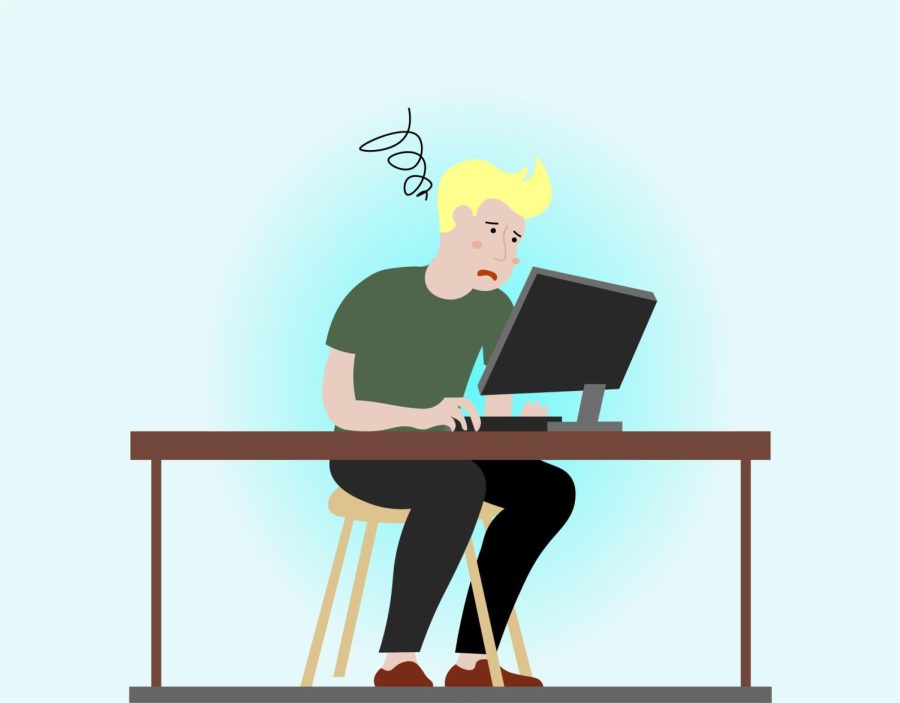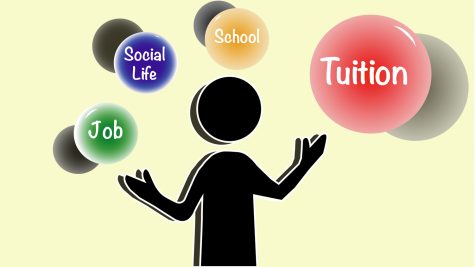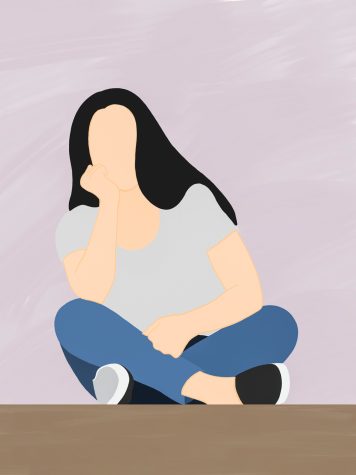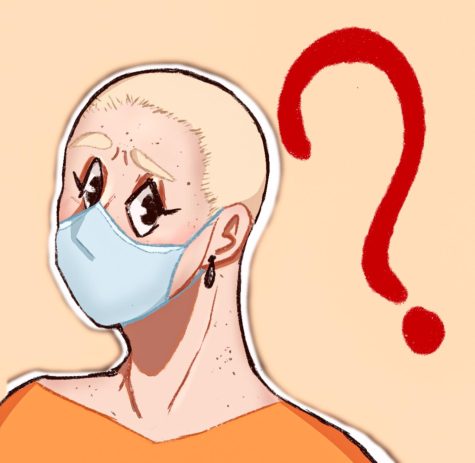OPINION: Online education harmful to students’ mental health
Going back online will put students’ well-being at risk
An online environment limits opportunities to get out and socialize, making it more important than ever to prioritize your mental health.
January 13, 2022
After over a year of online education, students were finally thrilled to be back roaming around campus last fall. However, with the recent surge of the new COVID-19 omicron variant, going back to school online is a real concern for many.
Now a sophomore, I spent the entirety of my freshman year isolated in my hometown, where every day seemed to give me déjà vu.
I experienced the same repetitive schedule each day – I would wake up, go to school, eat, sleep and then repeat it all again the next day. School started to become more and more of a chore, rather than something that bettered my mind.
Online education made it difficult for many students to establish meaningful connections at school, as they could not communicate with their peers and instructors in an effective way. The lively conversations that once existed in my in-person classes vanished as muted voices and black screens came to dominate my Zoom application.
As the year went on, online education took an unexpected toll on my mental health as I became more isolated when the cold weather hit. All the good parts of school seemed to be distant memories; I missed being around people and participating in the school activities that I enjoyed the most.
Fortunately, students could return to school in person this fall, restoring a shred of normalcy to the WSU community. I regained my footing as I moved onto campus and reunited with friends and professors.
Returning to campus last fall helped me rediscover my love for learning.
However, with many colleges around the country returning to online formats in response to the new omicron variant, it raises the question of what this might mean for students and their mental health.
Abbey Levea, sophomore sports management major, believes that online learning is more harmful than helpful for students.
“[You] don’t have the social aspect of being in class and surrounded by people,” Levea said.
Levea said that she was at home during her first semester of college, making her feel more isolated.
She said that she could only socialize with her one friend group rather than meet new people in classes every day. However, having classes in person this past semester made Levea realize the positive impact it has had on her learning.
“My classes this semester were pretty small, so I was able to have that one-on-one interaction and kind of make friends with my professors, unlike how it was online,” she said.
While there are several drawbacks to online education, it does have some benefits.
For example, there is much less pressure for students to present themselves in a certain way with online courses. There is also more free time to relax or sleep in.
Maggie Crickman, junior elementary education major, said that, at first, she preferred the online format due to these advantages. However, she soon realized the importance of social interaction when it came to her mental health.
“At first, it wasn’t terrible because I would say classes got a little bit easier, but it also became harder to learn because we were no longer able to ask questions in class and be in-person,” Crickman said. “That’s a big thing for me.”
There are four main learning styles that are considered in traditional classroom settings: visual, auditory, kinesthetic, and reading and writing. Online learning limits these learning styles because it is mainly auditory.
As a visual learner, Crickman said that being in a traditional classroom setting and interacting with professors and peers helps her grasp the material better.
Online education not only makes it difficult for students to make connections and learn but also limits their ability to interact with their peers outside of class.
Sporting events, volunteer opportunities, Greek life, clubs and many other chances for social interaction are lost in an online environment.
“Social interaction helps people de-stress and helps students put their mind off school,” Crickman said.
It seems going back online may be inevitable, so it is critical to ask ourselves what we can do to stay on top of our mental health during this everlasting pandemic.
Getting plenty of sleep, creating welcoming study spaces, eating healthy and taking long breaks are just a few simple things students can do to de-stress in an online environment. If you are isolated from friends or family, making time to FaceTime or hosting a virtual hangout can really help.
Remember to prioritize your mental health and make time to do things for yourself during these uncertain times, whether it is taking a break or phoning a friend.
We got this.


















